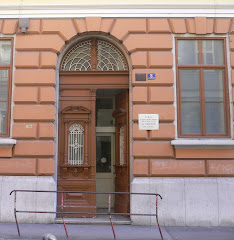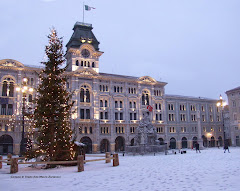 Carnival is a festive season which occurs immediately before Lent and its origins date back in ancient times.
Carnival is a festive season which occurs immediately before Lent and its origins date back in ancient times. 
The etymology of the word carnival is still under discussion, it could come from Carna-aval (that invites not to eat meat ) or Carnalia (name of a Roman feast in honor of Saturn) or even from the medieval Carnem-laxare (fasting).
The origins o f this feast are ancient and religious. Masks were used since paleolithic times during magical rites to dispel the evil souls. But it is mainly in ancient Rome that we can find the origins of our carnival. As a matther of fact the feasts in honor of Bacchus were done on the streets of the city with masks, wine and dances. During the Middle Ages and Renaissance carnival feasts were introduced in European courts and became more refined connected with theatre, music and dances.
f this feast are ancient and religious. Masks were used since paleolithic times during magical rites to dispel the evil souls. But it is mainly in ancient Rome that we can find the origins of our carnival. As a matther of fact the feasts in honor of Bacchus were done on the streets of the city with masks, wine and dances. During the Middle Ages and Renaissance carnival feasts were introduced in European courts and became more refined connected with theatre, music and dances.
Today Carnival is an occasion to have fun expressed trough camouflaging, masked parades and parties.
The most famous carnivals are held in Rio de Janeiro, New Orleans - where the climax is reached on Mardì Gras, and of course in Venice.
Here in Triest we celebrate Carnival with street parades and parties where people dress up or masquerade to sing, dance and have fun together. Our school closes for two days to give us the possibility to really enjoy the spirit of Carnival !
Marko and Azzurra (IVB)
 f this feast are ancient and religious. Masks were used since paleolithic times during magical rites to dispel the evil souls. But it is mainly in ancient Rome that we can find the origins of our carnival. As a matther of fact the feasts in honor of Bacchus were done on the streets of the city with masks, wine and dances. During the Middle Ages and Renaissance carnival feasts were introduced in European courts and became more refined connected with theatre, music and dances.
f this feast are ancient and religious. Masks were used since paleolithic times during magical rites to dispel the evil souls. But it is mainly in ancient Rome that we can find the origins of our carnival. As a matther of fact the feasts in honor of Bacchus were done on the streets of the city with masks, wine and dances. During the Middle Ages and Renaissance carnival feasts were introduced in European courts and became more refined connected with theatre, music and dances.Today Carnival is an occasion to have fun expressed trough camouflaging, masked parades and parties.

The most famous carnivals are held in Rio de Janeiro, New Orleans - where the climax is reached on Mardì Gras, and of course in Venice.
Here in Triest we celebrate Carnival with street parades and parties where people dress up or masquerade to sing, dance and have fun together. Our school closes for two days to give us the possibility to really enjoy the spirit of Carnival !
Marko and Azzurra (IVB)


.jpg)


Hello,
RispondiEliminathis is very interesting, and we haven´t got this carnival in Policka, but we have "Maskarady" in some villages - see the Czech blog.
Marie Majorova